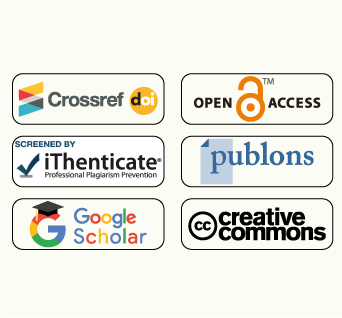A review on simulation based training on autonomous ships and protection of Egyptian maritime security
Abstract
Abstract
Autonomous ships are gaining more and more favor in the maritime sector as a result of their ability to boost productivity while simultaneously lowering costs and boosting levels of safety. However, the proliferation of autonomous ships brings with it new worries about cybercrime, piracy, and other challenges to maritime safety and security. Protecting marine security is of the highest significance in Egypt since the Suez Canal is an essential transportation route for international business. This research study investigates the function that training plays in improving both the general security of autonomous ships that operate in Egyptian seas as well as the cyber security of such ships. This research summarizes the findings of a survey of Egyptian maritime stakeholders about their perspectives of the necessity and efficacy of training for autonomous ships. The survey asked respondents about the available literature on training for autonomous ships and maritime security. The paper also evaluates this literature. According to the findings of the research, even though there is a rising knowledge of the significance of training for autonomous ships, there are substantial gaps in training programs and resources in Egypt. This is despite the fact that there is a growing awareness of the value of training for autonomous ships. The findings of the research are summarized in a set of suggestions for boosting Egypt's marine security and the quality of its training programs.
Received: 19 June 2023
Accepted: 22 August 2023
Published: 05 December 2023
Keywords
Full Text:
PDFReferences
Ampah, J.D. et al. (2021) ‘Reviewing two decades of cleaner alternative marine fuels: Towards IMO’s decarbonization of the maritime transport sector’, Journal of Cleaner Production, 320. Available at: https://doi.org/10.1016/j.jclepro.2021.128871.
Ash, N. and Scarbrough, T. (2019) ‘Sailing on Solar - Could green ammonia decarbonise international shipping?’, Ricardo Energy & Environment [Preprint], (May).
Bolbot, V. and T.G. and B. (no date) ‘Paving the way toward autonomous shipping development for European Waters – The AUTOSHIP project - Strathprints’. Available at: https://strathprints.strath.ac.uk/73981/ (Accessed: 8 October 2023).
Chapsos, I. (2016) ‘Is maritime security a traditional security challenge?’, in Advanced Sciences and Technologies for Security Applications. Available at: https://doi.org/10.1007/978-3-319-27914-5_4.
Christodoulou, A., & E.F.J. (no date) ‘Maritime Governance and International Maritime Organization Instruments Focused on Sustainability in the Light of United Nations’ Sustainable Development Goals _ SpringerLink’. Available at: https://link.springer.com/chapter/10.1007/978-3-030-69325-1_20 (Accessed: 8 October 2023).
Cordle, J., & C.T.S. (no date) ‘Survey of Littoral Combat Ship Bridge and Engine Room Personnel o..._ Ingenta Connect’. Available at: https://www.ingentaconnect.com/content/asne/nej/2019/00000131/00000001/art00019 (Accessed: 8 October 2023).
Edgerton, M. (no date) ‘Port and Maritime Security and Sustainability _ SpringerLink’. Available at: https://link.springer.com/chapter/10.1007/978-3-030-69325-1_8 (Accessed: 8 October 2023).
Ben Farah, M.A. et al. (2022) ‘Cyber Security in the Maritime Industry: A Systematic Survey of Recent Advances and Future Trends’, Information (Switzerland). Available at: https://doi.org/10.3390/info13010022.
Ghaderi, H. (2019) ‘Autonomous technologies in short sea shipping: trends, feasibility and implications’, Transport Reviews, 39(1). Available at: https://doi.org/10.1080/01441647.2018.1502834.
Gouda, D.M. (2022) Social Capital and Local Water Management in Egypt, Social Capital and Local Water Management in Egypt. Available at: https://doi.org/10.2307/j.ctv2ks6z9r.
Ichimura, Y. (2021) Evaluating the impacts of digitalization on ship operation: examining how to enhance maritime safety.
Jin, J. and Techera, E. (2021) ‘Strengthening universal jurisdiction for maritime piracy trials to enhance a sustainable anti-piracy legal system for community interests’, Sustainability (Switzerland), 13(13). Available at: https://doi.org/10.3390/su13137268.
Karawita, A.K. (2019) ‘Piracy in Somalia: An Analysis of the Challenges Faced by the International Community’, Jurnal Ilmu Sosial dan Ilmu Politik, 23(2). Available at: https://doi.org/10.22146/JSP.37855.
Khalifa, M. and Salem, N. (2019) ‘Statistical analysis of political and economic dimension of suez canal axis development project’, Journal of Statistics Applications and Probability, 8(3). Available at: https://doi.org/10.18576/JSAP/080310.
Komianos, A. (2018) ‘The Autonomous Shipping Era. Operational, Regulatory, and Quality Challenges’, TransNav, the International Journal on Marine Navigation and Safety of Sea Transportation, 12(2). Available at: https://doi.org/10.12716/1001.12.02.15.
Kovanen, T. (no date) ‘JYX - Cyber-threat aspects in a complex system-of-systems environment _ a case study in remote pilotage’. Available at: https://jyx.jyu.fi/handle/123456789/77501 (Accessed: 8 October 2023).
Li, S. and Fung, K.S. (2019) ‘Maritime autonomous surface ships (MASS): implementation and legal issues’, Maritime Business Review, 4(4). Available at: https://doi.org/10.1108/MABR-01-2019-0006.
Mallam, S.C., Nazir, S. and Sharma, A. (2020) ‘The human element in future Maritime Operations–perceived impact of autonomous shipping’, Ergonomics, 63(3). Available at: https://doi.org/10.1080/00140139.2019.1659995.
Man, Y. et al. (2015) ‘From Desk to Field - Human Factor Issues in Remote Monitoring and Controlling of Autonomous Unmanned Vessels’, Procedia Manufacturing, 3. Available at: https://doi.org/10.1016/j.promfg.2015.07.635.
Nguyen, S. and Wang, H.Y. (2018) ‘Prioritizing operational risks in container shipping systems by using cognitive assessment technique’, Maritime Business Review, 3(2). Available at: https://doi.org/10.1108/MABR-11-2017-0029.
Pancorbo Crespo, J., Guerrero Gomez, L. and Gonzalo Arias, J. (2019) ‘Autonomous Shipping and Cybersecurity’, Ciencia y tecnología de buques, 13(25). Available at: https://doi.org/10.25043/19098642.185.
Sharma, A. and Kim, T. eun (2022) ‘Exploring technical and non-technical competencies of navigators for autonomous shipping’, Maritime Policy and Management, 49(6). Available at: https://doi.org/10.1080/03088839.2021.1914874.
Shishir Upadhyaya (2018) Maritime Security Cooperation in the Indian Ocean Region: Assessment of India’s Maritime Strategy to be the Regional . Doctor of Philosophy.
Tijan, E. et al. (2021) ‘Digital transformation in the maritime transport sector’, Technological Forecasting and Social Change, 170. Available at: https://doi.org/10.1016/j.techfore.2021.120879.
Vagia, M., Transeth, A.A. and Fjerdingen, S.A. (2016) ‘A literature review on the levels of automation during the years. What are the different taxonomies that have been proposed?’, Applied Ergonomics. Available at: https://doi.org/10.1016/j.apergo.2015.09.013.
Will Kenton (no date) What Is the International Maritime Organization (IMO). Available at: https://gyansanchay.csjmu.ac.in/wp-content/uploads/2021/12/International-Maritime-Organization-IMO-Definition.pdf (Accessed: 8 October 2023).
Xufan Zhang · Michael Roe (2019) Maritime Container Port Security USA and European Perspectives.
Yoo, J. and Jo, Y. (2023) ‘Formulating Cybersecurity Requirements for Autonomous Ships Using the SQUARE Methodology’, Sensors, 23(11), p. 5033. Available at: https://doi.org/10.3390/s23115033.
DOI: http://dx.doi.org/10.21622/MRT.2023.02.2.140
Refbacks
- There are currently no refbacks.
Copyright (c) 2023 Ashraf Mohamed Elsayed
Maritime Research and Technology
E-ISSN: 2812-5622
P-ISSN: 2812-5614
Published by:
Academy Publishing Center (APC)
Arab Academy for Science, Technology and Maritime Transport (AASTMT)
Alexandria, Egypt
mrt@aast.edu

